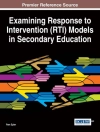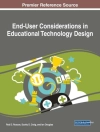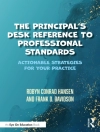This collection of empirical work offers an in-depth exploration of key issues in the education of adolescents and adults with refugee backgrounds residing in North America, Australia and Europe. These studies foreground student goals, experiences and voices, and reflect a high degree of awareness of the assets that refugee-background students bring to schools and broader society. Chapters are clustered according to the two themes of Language and Literacy, and Access and Equity. Each chapter includes a discussion of context, researcher positionality and implications for educators, policy-makers and scholars.
Inhoudsopgave
Introduction
SECTION ONE: LANGUAGE AND LITERACY
Chapter 1. Christopher Browder: Recently Resettled Refugee Students Learning English in U.S. High Schools: The Impact of Students’ Educational Backgrounds
Chapter 2. Bryan Ripley Crandall: “History Should Come First”: Perspectives of Somali-born, Refugee-background Male Youth on Writing in and out of School
Chapter 3. Koeun Park and Verónica Valdez: Translanguaging Pedagogy to Support the Language Learning of Older Nepali-Bhutanese Adults
Chapter 4. Delila Omerbašić: Girls with Refugee Backgrounds Creating Digital Landscapes of Knowing
Chapter 5. Katerina Nakutnyy and Andrea Sterzuk: Sociocultural Literacy Practices of a Sudanese Mother and Son in Canada
Chapter 6. M. Kristiina Montero: Narratives of Trauma and Self-healing Processes in a Literacy Program for Adolescent Refugee Newcomers”
Chapter 7. Anne Dahl, Anna Krulatz, and Eivind Torgersen: The Role of English as a Foreign Language in Educating Refugees in Norway
SECTION TWO: ACCESS AND EQUITY
Chapter 8. Amanda Hiorth and Paul Molyneux: Bridges and Barriers: Karen Refugee-background Students’ Transition to High School in Australia
Chapter 9. Amadu Khan: Educating Refugees through “Citizenship Classes and Tests”: Integration by Coercion or Autonomous Agency?
Chapter 10. Erin Papa: Using Photovoice with Cambodian and Guatemalan Youth to Uncover Community Cultural Wealth and Influence Policy Change
Chapter 11. Eva Holmkvist, Kirk Sullivan, and Asbjørg Westum: Swedish Teachers’ Understandings of Post Traumatic Stress Disorder among Adult Refugee-background Learners
Chapter 12. Annette Korntheuer, Maren Gag, Phillip Anderson, and Joachim Schroeder: Education of Refugee-background Youth in Germany: Systemic Barriers to Equitable Participation in the Vocational Education System
Chapter 13. Amy Pucino: Iraqi Refugee-background Adolescents’ Experiences in Schools: Using the Ecological Theory of Development to Understand Discrimination
Chapter 14. Eliana Hirano: Besides a Degree, What Do Refugee-background Students Gain from College?
Chapter 16. Martha Bigelow: Afterword
Over de auteur
Raichle Farrelly is an Assistant Professor in the Applied Linguistics Department and MA TESOL Program at Saint Michael’s College, Vermont, USA. She is a teacher educator and researcher with a focus on L2 teacher education, reflective teaching, and teaching English to adult refugee-background students. Her first co-authored book, published by TESOL Press, focuses on how instructors can support international students in higher education settings.












